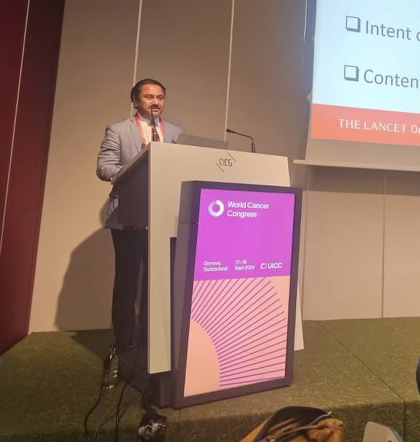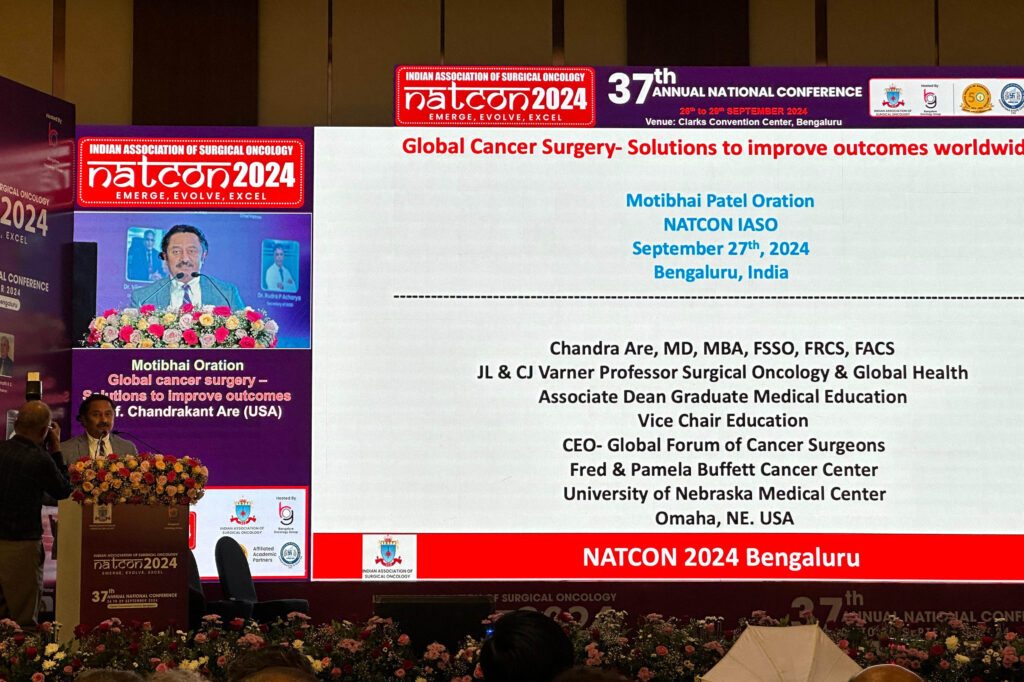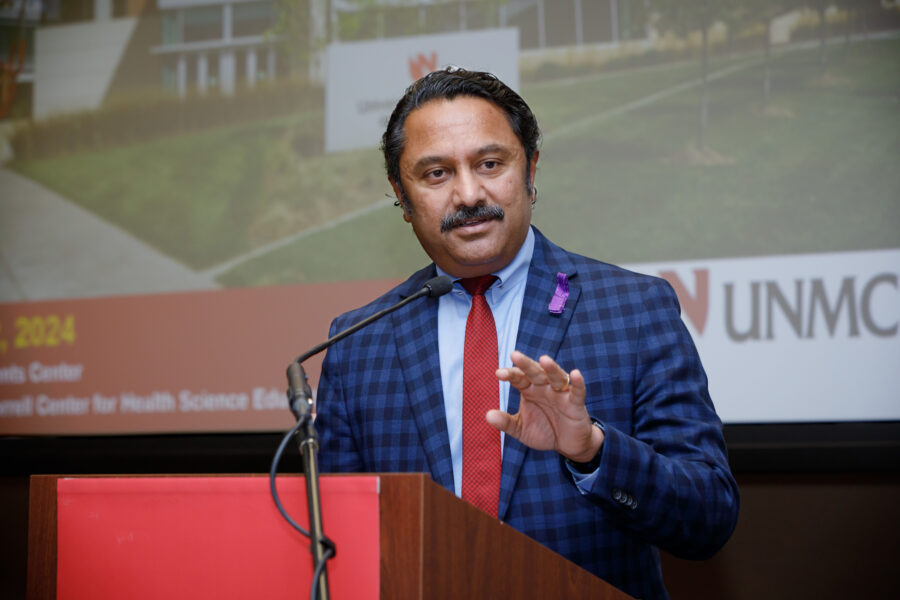Chandra Are, MBBS, vice chair of education in the UNMC Department of Surgery, organized a panel at the World Cancer Congress, held in Geneva in September, that focused on addressing inequities and promoting access to safe, timely and affordable cancer care to all.
The World Cancer Congress is an international conference organized by the Union for International Cancer Control (UICC) every two years. It underpins UICC’s mission as a major convening platform for the global cancer community.
The presentation by Dr. Are drew largely from the Lancet Oncology Commission on Global Cancer Surgery, for which he served as the lead commissioner.
Dr. Are also is the CEO of the Global Forum of Cancer Surgeons, which organized the panel, as well as the UNMC Varner Professor of Surgical Oncology and Global Health.
The World Cancer Congress discussion, Dr. Are said, is an extension of an interview he did with the ASCO Post, in which he discussed the role of surgery in cancer care and the importance of access to surgery.
Dr. Are also has presented on this topic at International Surgical Week, held in Malaysia on Aug. 29 and at the Indian Association of Surgical Oncology in Bengaluru, India, on Sept. 27.

He said he was excited at the reaction to his discussion on access.
“Cancer surgery should be a societal necessity for all and should not be considered a privilege for the few,” Dr. Are said. He said driving home that message and exploring how to increase patients’ access to needed surgeries was the impetus for his series of speaking engagements.
Dr. Are served as the lead commissioner of the second Lancet Oncology Commission on Global Cancer Surgery, which was a follow up to the first commission published in 2015. He said the solutions and actions proposed in the second commission will continue to have a major impact in promoting equitable access to cancer surgery, both nationally and on the global stage.
“The biggest takeaway from the commission’s work are the pragmatic solutions that can be applicable in nearly every part of the world, regardless of their resource settings,” he said. “In health care, we frequently tend to think in terms of the next big technology or major drug discovery to address our current issues related to inequities in access to cancer care.

“But sometimes there already is enough around us that, if used well, can improve access to cancer care. All we need to do is look at what we currently have, take good stock of it and implement it well. This approach can help to address inequities in access to cancer surgical care, which can have a broader impact than any of the latest technology.”
“Not that we don’t want to advance science,” he said. “But it’s finding that balance — how do we take what we already have and implement it better? How do we be careful in spending that dollar — while not ignoring innovation — to make sure that it is spent on treatment strategies that benefit everyone and not just a few?”
